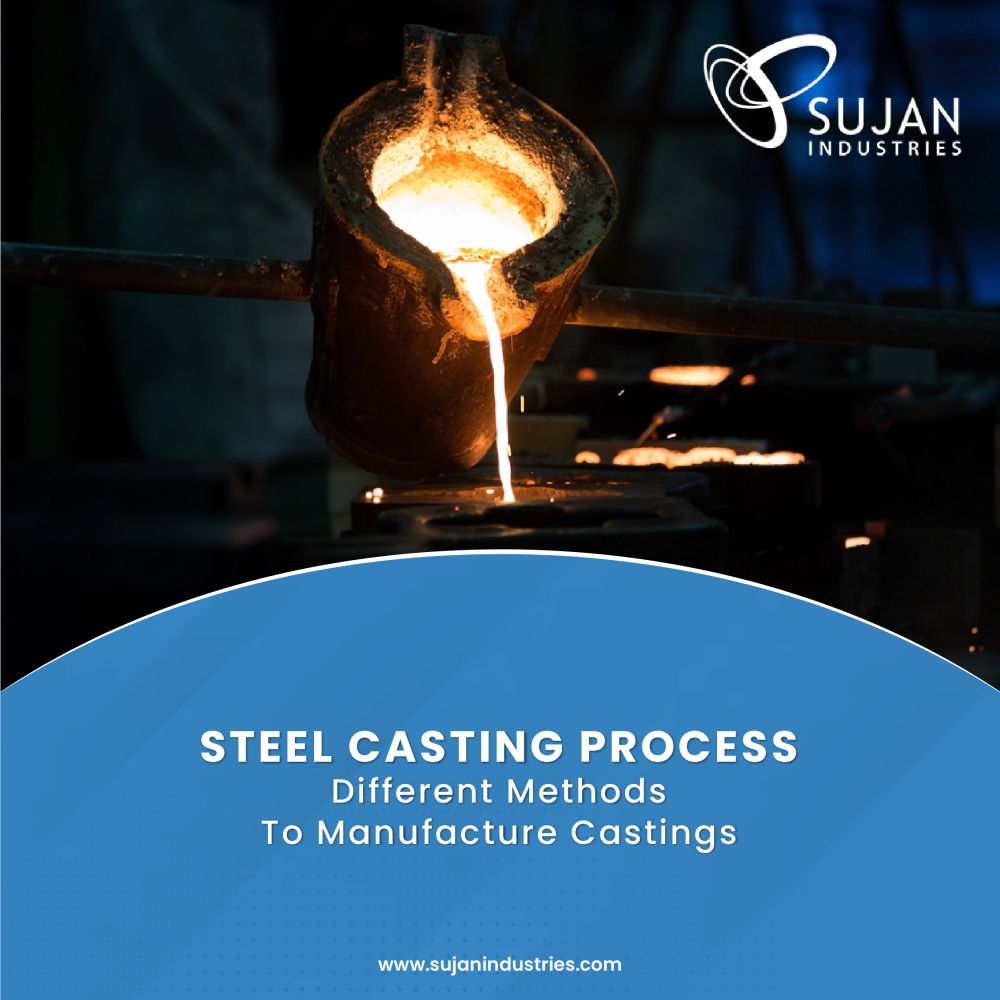
In the world of production, there are many manufacturing choices one can make. However, none will be as wise as opting for steel or sand casting as raw material for your components requirement. Why? Because of the many benefits they offer over other casting types, mainly cost-effectiveness, recyclability, quality, and speed.
From medical prototypes to automotive and aerospace applications, steel castings find their applications in relieving a variety of pain points.
That said, not all steel castings are created equal. These castings are forged using a variety of casting process that change the characteristics and properties of the final product. As a result, it becomes important to understand each product to ensure that the casting is suitable for your desired application.
Here are some of the popular methods of forging steel castings.
Continuous casting, a process that begins high above the factory floor, transforms molten metal into solid blooms, billets, and slabs. A precise flow of molten metal is guided through a mold, cooled with walls that freeze the exterior, resulting in a solid yet pliable piece.
This allows the continuous casting machine to bend the casting horizontally and guide it through wheels to a conveyor belt, where it is solidified with cooling sprays. Precision gas jets then cut the piece into manageable lengths, ready for stacking and further processing. This essential step in steel production yields uniform and high-quality raw material, which is used for the manufacturing of worked steel in a steel foundry.
Centrifugal casting, a robust technique of shaping liquid metal into solid form, involves the high-speed rotation of a water-cooled mold around its central axis as liquid metal is fed in.
The centrifugal force draws the liquid evenly along the mold’s surface, producing a uniform and seamless castings, ideal for cylindrical or circular objects such as tubes or rings. With low defect rates and impurities confined to the inner surface, centrifugal casting results in strong, seamless structures ideal for applications requiring pressure resistance. This refined casting process is widely used to create pipes and fittings that embody both strength and beauty.
A manufacturing process for producing precision metal parts die casting utilizes a metallic mold, an injection system, and a basin of molten metal to get the job done.
The process begins with an open mold lubricated with a spray, then the two halves of the mold are closed, and the metal is injected with pressure into the mold. After a moment of cooling, the new casting is pushed out of the mold by ejector pins, ready to begin the process anew.
There are two methods of metal injection in die casting, the cold-chamber method, where an injection chamber must be filled and then pushed into the mold, and the hot-chamber method, where the chamber is immersed into the molten metal and refilled, then pushed into the mold with either a piston or air pressure.
This highly efficient and precise process yields uniform metal parts with fine details and dimensional accuracy.
At Sujan Industries, one of the leading stainless steel casting manufacturers in India, we employ the most cost-effective, reliable, and efficient casting processes to bring you the best-quality casting products in the market.
This process creates hollow castings without using cores by using molds that merely have a coating of metal on the inside, known as a metal’ skin.’
There are many different ways to carry out slush casting depending on how fast the metal sets. In one method, you can pour small portions of liquid into the mold and rotate so that the inside of the mold gets coated evenly with metal.
In the other slush casting process, you can fill the mold entirely and then pour the excess material out after a specific cooling time. Pewter, zinc, and aluminum are the most common metals that are slush cast.
Armed with this knowledge, you’ll now be able to differentiate between differently casted steel casting products and make an informed buying decision based on your application and needs.
Service your every casting need with Sujan Industries’ wide range of casting products, designed to deliver reliability and durability. Get in touch with us to know more.